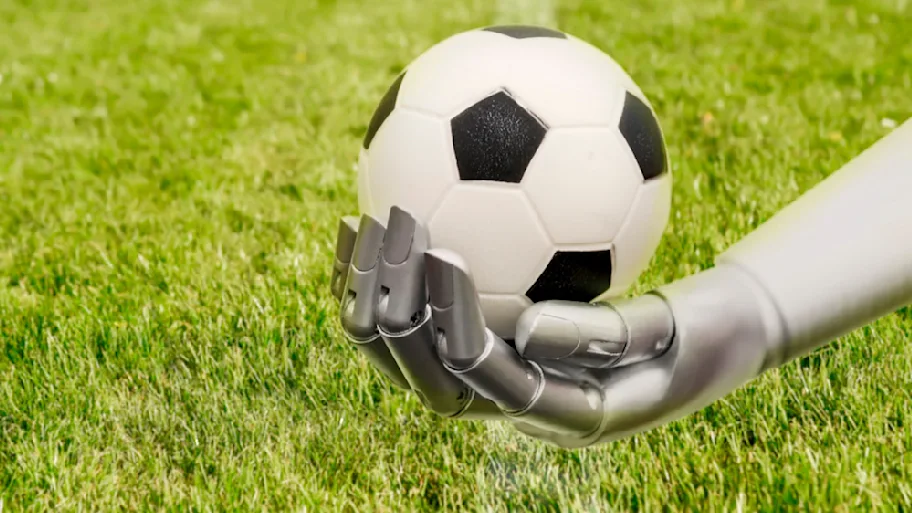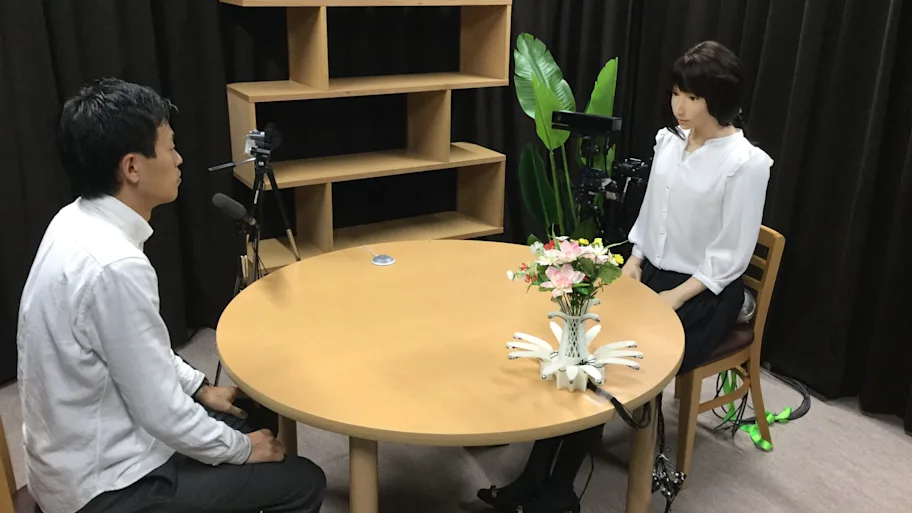
- Science news
- Robotics and AI
- Open Access may help enlighten society on the social value of robotics and AI
Open Access may help enlighten society on the social value of robotics and AI

By Giorgio Metta
Robotics and Artificial Intelligence (AI) promise to be the next technological revolution. There is some debate between those who believe that it would enable our digital technology to address concrete societal problems, and those who want to limit it based on ignorance and fear. One way to help clear the debate is by spreading knowledge about robotics and AI through Open Access publishing. The open release of information and the results (and implications) to the general public could help enlighten them to the see the social value of robotics and AI through the eyes of the scientists who work in the field.
The European Commission believes robotics and AI will contribute to address the most pressing societal challenges of our time, such as, in fully automated and intelligent factories which will make for energetically sustainable production, in the creation of robot surgeons or rehabilitation robotics to improve long-term health care, as well as, to intervene in case of disaster such as in Fukushima or in the Gulf of Mexico disasters.
The first signs that this “revolution” is happening can be seen in our consumer devices. Smart phones are an example where sophisticated software is delivering value at an increasing pace. Work scheduling and organization is becoming simpler as the device connects continuously to the network to bring about the best possible planning, recommendation, route, travel option or restaurant.
Computer vision is becoming successful as testified by the release of vision controlled videogame consoles. Cameras and lasers help drivers to park, brake and monitor their attention level warning at the first sign of sleep or any other dangerous behavior. Above all, Google researchers (and others) have clocked hundreds of thousands of miles in cars without a human driver and more importantly without accidents on California roads. Driverless cars will deliver the promise of reducing the heavy death toll due to personal mobility (which history will compare to the worst of the wars).
Small robots are helping for the first time in taking care of cleaning floors, swimming pools and large industrial warehouses automatically. Human-friendly robots are being delivered to industry as we speak (e.g. BMW) to cooperate in assembly tasks. The idea of the robotic co-worker is finally believed to be feasible and economically viable. Exoskeletons and other similar rehabilitation devices are now commonplace in advanced hospitals and rehab centers worldwide.
Undeniably, the social value of robotics and AI, that is the transformation of information technology into something “physical” that can act in the world and, the opportunity to bring the robots to a new level of autonomy and safety, is an enormous opportunity.
Robotics and AI is not just a “revolution” in terms of bringing to fruition a new set of technologies. They are game changers as they affect humanity’s progress and its “evolution”. Robotics and AI will help trading labor for quality of life. Robots will first help in our daily chores, later they will help when we get older to support quality of life in the third and fourth age.
Scaremongers on the contrary seem to fear the possibility of greater labor displacement and social dislocation. Although there is no way to seriously predict the overall outcome in the long term, the Economist reports that technology in the past had generally led to an increase of the quality of life and pro-capita riches.
Conversely, estimates of the European Commission depict a dire scenario. By 2050, for each person beyond working age (>65) there is going to be only two productive persons (>16). About 29% of the total GDP will be spent to support pension, health care and long-term care. We will witness a declining workforce (rather than unemployment) and a chronic inability to support the less fortunate segments of the population. In the emerging economies and depressed areas of the planet (5/6 of Earth population), robotics and AI, together with optimized production and low-cost fabrication technologies can become the ideal companion to energy and health care policies.
The other common fear of robotics and AI is the controllability of technology, its potential for military use and in the case of AI, whether it can be controlled at all. This is a recurring argument after any new technology (genetics, nanotechnology, etc.). Anything we build has a potential for misuse and regretfully history has shown a long trail of such misuses. There is no way to counteract these dangers but with research and scientific knowledge. Having the knowledge to understand what we build and predict its behavior (even when this is an autonomous machine) is a proper research question that needs to be investigated.
Paraphrasing Carl Sagan’s last TV interview*, there is only one possible rational argument, that is, we have to shed lights into robotics and AI technologies through research so that later we can make informed choices. Fearing robotics because of either jobs displacement or misuse does not look a viable option. We need these new technologies. We have therefore to invest in research more than ever to base decisions on facts and, simultaneously, in communicating results as broadly as possible.
Open publication and release of the results of science (and their implications), education and a new general public scientific dissemination are a fundamental aspect of our mission as scientists. Widespread knowledge to everyone interested in the discussion but nonetheless scientifically sound knowledge is fundamental to avoid the risk of basing future research policies on myth or fear.
About Giorgio Metta:

Giorgio Metta is the Specialty Chief Editor of Frontiers in Humanoid Robotics. He is also the director of the iCub Facility department at the Istituto Italiano di Tecnologia (IIT) where he coordinates the development of the iCub robotic platform/project and is deputy director of IIT delegate to the international relations and external funding. Giorgio Metta is the author of approximately 250 scientific publications and his research activities are in the fields of biologically motivated and humanoid robotics and, in particular, in developing humanoid robots that can adapt and learn from experience.
Learn more and follow him on Loop
* In his last TV interview, Carl Sagan expressed great concern that “if the general public doesn’t understand science and technology, then who is making all of the decisions about science and technology that are going to determine what kind of future our children live in, some members of congress? There are only a handful who have any background in science at all, and some of them don’t even want to know about it.






